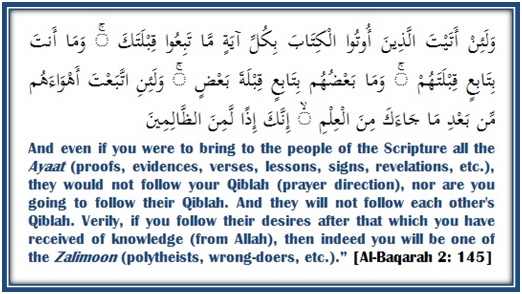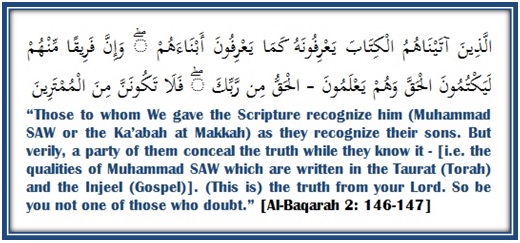Allah taala ke kitne nam hai aur un namo ka matlab?
Allah taala ke 99 Namo ke matlab.
_*بِسْمِ ٱللَّهِ ٱلرَّحْمَـٰنِ ٱلرَّحِيمِ*_
_*बिस्मिल्लाहिर रहमानिर रहीम*_
🌿🌿🌿🌿🌿
➖➖➖➖➖➖
🟥 _*अल्लाह के नामों का बयान।*_
✅️हज़रते अबू हुरैरह रज़ियल्लाहो ताला अन्ह ने बयान किया कि रसूलुल्लाह सल्लल्लाहो अलैहे वसल्लम ने फरमाया,
{{अल्लाह तआला के 99 नाम हैं याअनि एक कम सौ जो शख्स उन सबको महफूज़ रखेगा वह जन्नत मे दाखिल होगा।}}
{{सही बुखारी,किताबुल शुरूत़,हदीस नम्बर 2736,तखरीज-सही बुखारी6410,7392,तिर्मिज़ी 3507}}
➖➖➖➖➖➖
✅️अबूहुरैरह रज़ियल्लाहो अन्ह कहते है कि रसूलुल्लाह सल्लल्लाहो अलैहे वसल्लम ने फरमाया
✅️إِنَّ لِلَّهِ تَعَالَى تِسْعَةً وَتِسْعِينَ اسْمًا مِائَةً غَيْرَ وَاحِدٍ مَنْ أَحْصَاهَا دَخَلَ الْجَنَّةَ
{{इन्ना लिल्लाहि तआला तिस्अतन् व तिस्ईनस्मन् मियतन् ग़ैरा वाहिदिन् मन् अह्साहा दखलल् जन्नता//
अल्लाह तआला के 99 नाम हैं,जो उन्हें शुमार करेगा वह जन्नत मे जाएगा।}}
🍁(1)هُوَ اللَّهُ الَّذِي لَا إِلَهَ إِلَّا هُوَ
{{सूरह इख्लास 112/1,त़ाहा 20/8,नम्ल 27/62,हश्र 59/22-23}}
🍁(2)الرَّحْمَنُ
{{बक़रह 2/163}}
🍁(3)الرَّحِيمُ
{{आल इमरान 3/129}}
🍁(4)الْمَلِكُ
{{मुअमिन 40/116}}
🍁(5)الْقُدُّوسُ
{{हश्र 59/23}}
🍁(6)السَّلَامُ
{{हश्र 59/23}}
🍁(7)الْمُؤْمِنُ
{{हश्र 59/23}}
🍁(8)الْمُهَيْمِنُ
{{हश्र 59/23}}
🍁(9)الْعَزِيزُ
{{बक़रह 2/260}}
🍁(10)الْجَبَّارُ
{{हश्र 59/23}}
🍁(11)الْمُتَكَبِّرُ
{{हश्र 59/23}}
🍁(12)الْخَالِقُ
{{हश्र 59/24}}
🍁(13)الْبَارِئُ
{{हश्र 59/24}}
🍁(14)الْمُصَوِّرُ
{{हश्र 59/24}}
🍁(15)الْغَفَّارُ
{{साद 38/66}}
🍁(16)الْقَهَّارُ
{{रअद 13/16}}
🍁(17)الْوَهَّابُ
{{साद 38/9}}
🍁(18)الرَّزَّاقُ
{{ज़ारियात 51/58}}
🍁(19)الْفَتَّاحُ
{{सबा 34/26}}
🍁(20)الْعَلِيمُ
{{बक़रह 2/32}}
🍁(21)الْقَابِضُ
{{सही इब्नेहिब्बान 808}}
🍁(22)الْبَاسِطُ
{{बक़रह 2/245}}
🍁(23)الْخَافِضُ
{{इब्नेहिब्बान 808}}
🍁(24)الرَّافِعُ
{{ज़ुखरुफ 43/32}}
🍁(25)الْمُعِزُّ
{{इब्नेहिब्बान 808}}
🍁(26)الْمُذِلُّ
{{आल इमरान 3/26}}
🍁(27)السَّمِيعُ
{{शूरा 42/11}}
🍁(28)الْبَصِيرُ
{{बक़रह 2/233}}
🍁(29)الْحَكَمُ
{{अन्आम् 6/114}}
🍁(30)الْعَدْلُ
{{अन्नहल 16/90}}
🍁(31)اللَّطِيفُ
{{मुल्क 67/14}}
🍁(32)الْخَبِيرُ
{{तहरीम 66/3}}
🍁(33)الْحَلِيمُ
{{अहज़ाब 33/51}}
🍁(34)الْعَظِيمُ
{{वाक़ेअह 56/74}}
🍁(35)الْغَفُورُ
{{हिज्र 15/49}}
🍁(36)الشَّكُورُ
{{फात़िर 35/34-35}}
🍁(37)الْعَلِيُّ
{{मुअमिन,ग़ाफिर 40/12}}
🍁(38)الْكَبِيرُ
{{लुक़मान 31/30}}
🍁(39)الْحَفِيظُ
{{सबा 34/21}}
🍁(40)الْمُقِيتُ
{{निसाअ 4/85}}
🍁(41)الْحَسِيبُ
{{ग़ाशियह 88/25-26}}
🍁(42)الْجَلِيلُ
🍁(43)الْكَرِيمُ
{{अल इन्फित़ार 82/6}}
🍁(44)الرَّقِيبُ
{{निसाअ 4/1}}
🍁(45)الْمُجِيبُ
{{हूद 11/61}}
🍁(46)الْوَاسِعُ
{{बक़रह 2/247}}
🍁(47)الْحَكِيمُ
{{सबा 34/1}}
🍁(48)الْوَدُودُ
{{हूद 11/90}}
🍁(49)الْمَجِيدُ
{{हूद 11/73}}
🍁(50)الْبَاعِثُ
{{हज्ज 22/7}}
🍁(51)الشَّهِيدُ
{{हज्ज 22/17}}
🍁(52)الْحَقُّ
{{हज्ज 22/63}}
🍁(53)الْوَكِيلُ
{{निसाअ 4/81}}
🍁(54)الْقَوِيُّ
{{हज 22/40}}
🍁(55)الْمَتِينُ
{{ज़ारियात 51/58}}
🍁(56)الْوَلِيُّ
{{शूरा 42/28}}
🍁(57)الْحَمِيدُ
{{फात़िर 35/15}}
🍁(58)الْمُحْصِي
{{जिन्न 72/28}}
🍁(59)الْمُبْدِئُ
{{युनुस 10/4}}
🍁(60)الْمُعِيدُ
{{रूम 30/27}}
🍁(61)الْمُحْيِي
{{हदीद 57/2}}
🍁(62)الْمُمِيتُ
{{हदीद 57/2}}
🍁(63)الْحَيُّ
{{त़ाहा 20/111}}
🍁(64)الْقَيُّومُ
{{त़ाहा 20/111}}
🍁(65)الْوَاجِدُ
{{निसाअ 4/64}}
🍁(66)الْمَاجِدُ
{{बुरूज 85/15}}
🍁(67)الْوَاحِدُ
{{रअद 13/16}}
🍁(68)الصَّمَدُ
{{इखलास 112/2}}
🍁(69)الْقَادِرُ
{{अन्आम 6/65}}
🍁(70)الْمُقْتَدِرُ
{{कहफ 18/45}}
🍁(71)الْمُقَدِّمُ
{{यासीन 36/12}}
🍁(72)الْمُؤَخِّرُ
{{सही बुखारी 834}}
🍁(73)الْأَوَّلُ
{{हदीद 57/3}}
🍁(74)الْآخِرُ
{{हदीद 57/3}}
🍁(75)الظَّاهِرُ
{{हदीद 57/3}}
🍁(76)الْبَاطِنُ
{{हदीद 57/3}}
🍁(77)الْوَالِيَ
{{रअद 13/11}}
🍁(78)الْمُتَعَالِي
{{रअद 13/09}}
🍁(79)الْبَرُّ
{{सूरह त़ूर,52/28}}
🍁(80)التَّوَّابُ
{{सूरह अल् हुजरात,49/12}}
🍁(81)الْمُنْتَقِمُ
{{माइदह 5/95}}
🍁(82)الْعَفُوُّ
{{निसाअ 4/99}}
🍁(83)الرَّءُوفُ
{{बक़रह 2/143}}
🍁(84)مَالِكُ الْمُلْكِ
{{आल इमरान 3/26,इब्नेहिब्बान 808}}
🍁(85)ذُو الْجَلَالِ وَالْإِكْرَامِ
{{रहमान 55/27}}
🍁(86)الْمُقْسِطُ
{{युनुस 10/47}}
🍁(87)الْجَامِعُ
{{आल इमरान 3/9}}
🍁(88)الْغَنِيُّ
{{निसाअ 4/131}}
🍁(89)الْمُغْنِي
{{नूर 24/32}}
🍁(90)الْمَانِعُ
{{सही बुखारी 844}}
🍁(91)الضَّارُّ
{{जिन्न 72/21}}
🍁(92)النَّافِعُ
{{इब्नेहिब्बान 808}}
🍁(93)النُّورُ
{{नूर 24/35}}
🍁(94)الْهَادِي
{{फुर्क़ान 25/31}}
🍁(95)الْبَدِيعُ
{{अन्आम 6/101}}
🍁(96)الْبَاقِي
{{रहमान 55/26-27}}
🍁(97)الْوَارِثُ
{{क़सस28/58}}
🍁(98)الرَّشِيدُ
{{कहफ 18/10}}
🍁(99)الصَّبُورُ
{{सही इब्नेहिब्बान 808,सही बुखारी 7378}}
{{🍁1-अल्लाह इस्म ज़ात सब नामो से अशरफ व अअला,
🍁2-अर् रहमान बहुत रहम करने वाला,
🍁3-अर् रहीम मेहरबान,
🍁4-अल् मलिकु बादशाह,
🍁5-अल् क़ुद्दूसु निहायत पाक,
🍁6-अस् सलामु सलामती देने वाला,
🍁7-अल् मुअमिनु यक़ीन वाला,
🍁8-अल् मुहैमिन् निगहबान,
🍁9-अल् अज़ीज़ु ग़ालिब,
🍁10-अल् जब्बारु तसल्लुत वाला,
🍁11-अल् मुतकब्बिरु बड़ाई वाला,
🍁12-अल् खालिक़ु पैदह करने वाला,
🍁13-अल् बारिउ पैदा करने वाला,
🍁14-अल् मुसव्विरु सूरत बनाने वाला,
🍁15-अल् गफ्फारु बहुत बख्शने वाला,
🍁16-अल् क़ह्हारु क़हर वाला,
🍁17-अल् वह्हाबु बहुत देने वाला,
🍁18-अर् रज़्ज़ाक़ु रोज़ी देने वाला,
🍁19-अल् फत्ताहु फैसलह चुकाने वाला,
🍁20-अल् अलीमु जानने वाला,
🍁21-अल् क़ाबिज़ु रोकने वाला,
🍁22-अल् बासित़ु छोड़ देने वाला,फैलाने वाला,
🍁23-अल् खाफिज़ु पस्त करने वाला,
🍁24-अर् राफिउ,बुलन्द करने वाला,
🍁25-अल् मुइज़्ज़ु इज़्ज़त देने वाला,
🍁26-अल् मुज़िल्लु ज़िल्लत देने वाला,
🍁27-अस्समीउ सुनने वाला,
🍁28-अल् बसीरु देखने वाला,
🍁29-अल् हकीमु फैसलह करने वाला,
🍁30-अल् अद्लु इँसाफ वाला,
🍁31-अल् लत़ीफु बन्दों पर शफ्क़त करने वाला,
🍁32-अल् खबीरु खबर रखने वाला,
🍁33-अल् हलीमु बुर्दबार,
🍁34-अल् अज़ीमु बुज़ुर्गी वाला,
🍁35-अल् गफूरु बहुत बख्शने वाला,
🍁36-अश् शकूरु क़द्र करने वाला,
🍁37-अल् अलिय्यु ऊँचा,
🍁38-अल् कबीरु बड़ा,
🍁39-अल् हफीज़ु निगहबान,
🍁40-अल् मुक़ीतु त़ाक़त व क़ुव्वत वाला,
🍁41-अल् हसीबु हिसाब लेने वाला,
🍁42-अल् जलीलु बुज़ुर्ग,
🍁43-अल् करीमु करम वाला,
🍁44-अर् रक्रीबु मुत़्त़लअ रहने वाला,
🍁45-अल् मुजीबु क़ुबूल करने वाला,
🍁46-अल् वासिउ कुशादगी और वुस्अत वाला,
🍁47-अल हकीमु हिकमत वाला,
🍁48-अल् वदूदु बहुत चाहने वाला,
🍁49-अल् मजीदु बुज़ुर्गी वाला,
🍁50-अल् बाइषु ज़िन्दह करके उठाने वाला,
🍁51-अश् शहीदु निगरान,हाज़िर,
🍁52-अल् हक़्क़ु सच्चा,
🍁53-अल् वकीलु कारसाज़,
🍁54-अल् क़विय्यु त़ाक़तवर,
🍁55-अल् मतीनु मज़बूत,
🍁56-अल् वलिय्यु मददगार व मुहाफिज़,
🍁57-अल् हमीदु लायक़ ए हम्द,
🍁58-अल् मुह्सिउ शुमार करने वाला,
🍁59-अल्मुब्दुऊ आग़ाज़ करने वाला है,
🍁60-अल्मुईदु दुबारह पैदा करने वाला है,
🍁61-अल्मुह्यू ज़िन्दगी देने वाला है,
🍁62-अल् मुमीतु मारने वाला,
🍁63-अल् हय्यु ज़िन्दह,
🍁64-अल् क़्य्युमु क़ायम रहने व क़ायम रखने वाला,
🍁65-अल् वाजिदु पाने वाला,
🍁66-अल् माजिदु बुज़ुर्गी वाला,
🍁67-अल् वाहिदु अकेला,
🍁68-अल् समदु बेनियाज़,
🍁69-अल् क़ादिरु क़ुदरत वाला,
🍁70-अल् मुक़्तदिरु त़ाक़तवर,पकड़ने वाला,
🍁71-अल् मुक़द्दमु पहला,
🍁72-अल् मुअख्खरु पिछला,
🍁73-अल् अव्वलु पहला,
🍁74-अल् आखिरु पिछला,
🍁75-अल् ज़ाहिरु ज़ाहिर,
🍁76-अल् बात़िनु पोशीदह,
🍁77-अल् वालिउ मालिक,मुख्तार,
🍁78-अल् मुतआलु बरतर,
🍁79-अल् बर्रु भलाई वाला,
🍁80,अल् तव्वाबु तौबह क़ुबूल करने वाला,
🍁81-अल् मुन्तक़िमु इन्तिक़ाम लेने वाला,
🍁82-अल् अफुव्वु दरगुज़र करने वाला,
🍁83-अल् रऊफु शफक़त वाला,
🍁84-अल् मालिकुल् मुल्कु तमाम जहान का मालिक,
🍁85-ज़ुल् जलालि वल् इकरामि इज़्ज़त व जलाल वाला,
🍁86-अल् मुक़्सितु इँसाफ करने वाला,
🍁87-अल् जामिउ जमअ करने वादा,
🍁88-अल् गनिय्यु तवंगर व बेनियाज़,
🍁89-अल् मुग़्नी बानियाज़,
🍁90-अल् मानेउ रोकने वाला,
🍁91-अज़् ज़ार्रु नुक़सान पहुँचाने वाला,
🍁92-अन् नाफेउ नफअ पहुँचाने वाला,
🍁93-अन्नूरु रौशन,
🍁94-अल् हादिउ हिदायत बख्शने वाला,
🍁95-अल् बदीउ अज़ सरे नौ पैदह करने वाला,
🍁96-अल् बाक़ियु क़ायम रहने वाला,
🍁97-अल् वारिषु वारिष,
🍁98-अर् रशीदु खैर व भलाई वाला,
🍁99-अस् सबूरु बुर्दबार।}}
इमाम तिर्मिज़ी रहमतुल्लाह अलैह कहते है यह हदीस गरीब है,---और हम अकसर व बेशतर रिवायात को जिनमे अस्मा ए इलाही का ज़िक्र है,इस हदीस के सिवा किसी हदीस को सनद के ऐतेबार से सही नही पाते,आदम बिन अबी अयास ने यह हदीस इस सनद के अलावह दूसरी सनद से अबूहुरैरह रज़ियलालाहो अन्ह से और उन्होने नबी अकरम सल्लल्लाहो अलैहे वसल्लम से रिवायत की है और इसमे अस्माअ का ज़िक्र किया है लेकिन उस हदीस की सनद सही नही है।
{{जामेअ तिर्मिज़ी,किताबुद्दअवात,हदीस नम्बर 3507,तखरीज-इस्नादह ज़ईफ,दारुद्दअवात,99 नामो के ज़िक्र के साथ यह हदीस ज़ईफ है।,सही इब्नेहिब्बान,किताबुर् रक़ाइक़ि,हदीस नम्बर 808}}
➖➖➖➖➖➖
🟥 _*अन्य अस्माए हुस्नाअ।*_
➖➖➖➖➖➖
➖➖➖➖➖➖
🍁(1)अल् अहदु(एक,तन्हा,अकेला)
{{इख्लास 112/1,इब्नेहिब्बान 808}}
🍁(2)-अल् अअला(सबसे बुलन्द)
{{अअला 87/1}}
🍁(3)-अल् अक्रमु(बड़ा करीम)
{{अलक़ 96/3}}
🍁(4)-अल् इलाहु(मअबूद,जिसकी परस्तिश की जाती हो)
{{अन्नम्ल् 27/62}}
🍁(5)-अल् अकबरु(सबसे बड़ा)
{{सुनन दारक़ुत्नी 2/50}}
🍁(6)-अत् तामु(पूरा करने वाला)
{{अस् सफ् 61/8 से इस्तिद्लाल }}
🍁(7)-अल् जव्वादु(सबसे ज़्यादह नवाज़ने वाला)
{{सिलसिलह अस्सहीहह लिल् अल्बानी 169/4}}
🍁(8)-अल् जमीलु(खूबसूरत,हुस्न ए कषीर वाला)
{{सही मुस्लिम 147}}
🍁(9)-अल् हाफिज़ु(हिफाज़त करने वाला,निगहबान)
{{युसुफ 12/64}}
🍁(10)-अल् हफिय्यु(बड़ा मेहरबान)
{{मरियम 19/47}}
🍁(11)-अल् ख़ल्लाक़ु(बेहतरीन पैदा करने वाला)
{{यासीन् 36/81}}
🍁(12)-अद् दह्रु(ज़माने वाला)
{{सही बुखारी 6181}}
🍁(13)-अद् दाइमु(हमेशा से है और रहेगा)
{{सही मुस्लिम 2246}}
🍁(14)-अद् दय्यानु(बद्लह लेने वाला,मुहासबह करने वाला)
{{अल् फातिहा 1/ 3 से इस्तिद्लाल।}}
🍁(15)-ज़ुत़्त़ौलि(फज़्ल व करम करने वाला)
{{ग़ाफिर 40/3}}
🍁(16)-ज़ुल् मआरिज्(बुलन्द दरजात वाला)
{{अल् मआरिज् 70/3}}
🍁(17)-ज़ुल् फज़्ल(फज़्ल वाला)
{{बक़रह 2/105}}
🍁(18)-अर् रब्बु(पालनहार)
{{अन्आम 6/164}}
🍁(19)-अर् रफीउ(बहुत बुलन्द ,बुलन्दी देने वाला)
{{ग़ाफिर(अल् मुअमिन्)40/15}}
🍁(20)-अर् रफीक़ु(दोस्त,नरमी वाला)
{{सही बुखारी 6927}}
🍁(21)-अज़् ज़ारिउ(खेती उगाने वाला)
{{वाक़ेअह 56/63-64}}
🍁(22)-अल् सैय्यदु(सरदार)
{{सुनन अबू दाऊद 4806,सही।}}
🍁(23)-अस् सुब्बूहु(बहुत पाकीज़गी वाला)
{{सफ 61/1}}
🍁(24)-अस्सित्तीरु (पर्दह डालने वाला)
🍁(25)-अश् शाकिरु(क़द्रदान)
{{बक़रह 2/158}}
🍁(26)-अश् शदीदु(सख्ती करने वाला)
{{अल् रअद 13/13}}
🍁(27)-अश् शफीउ(सिफारिशी)
{{अन्आम 6/51}}
🍁(28)-अश् शाफियू(शिफा अत़ा करने वाला)
{{सही बुखारी 5675}}
🍁(29)-अस् सानिउ(कारीगर)
{{अन्नम्ल 27/88}}
🍁(30)-अत् तैय्यिबु(पाक)
{{सही मुस्लिम 1015}}
🍁(31)-अल् आलिमु(मालिक ए इल्म)
{{तग़ाबुन् 64/18}}
🍁(32)-अल् अल्लामु(सब कुछ जानने वाला)
{{अल् माइदह 5/109}}
🍁(33)-अल् ग़ालिबु(ग़ल्बह पाने वाला)
{{युसुफ12/21}}
🍁(34)-अल् ग़ाफिरु(मुआफ करने वाला)
{{ग़ाफिर(अल् मुअमिन्)40/3}}
🍁(35)-अल् ग़ैय्यूरु(इन्तिहाई ग़ैरतमन्द)
{{सही बुखारी 5223}}
🍁(36)-अल् फअआलु(कर ग़ुज़रने वाला)
{{अल् बरूज 85/14-16}}
🍁(37)-अल् फात़िरु(पैदा करने वाला)
{{फातिर 35/1}}
🍁(38)-अल् फालिक़ु(फाड़ निकालने वाला)
{{इन्आम 6/95-96}}
🍁(39)-फारिजल् हम्मि(मसायब व मुश्किलात को टालने वाला)
{{मुस्तदरक अल हाकिम 515/1}}
🍁(40)-अल् क़ाहिरु(ग़ालिब व ज़बरदस्त त़ाकतवर)
{{अन्आम 6/18}}
🍁(41)-अल् क़दीरु(त़ाक़तवर)
{{बक़रह 2/ 20}}
🍁(42)-अल् क़रीबु(इन्तिहाई क़रीब व नज़दीक)
{{बक़रह 2/186}}
🍁(43)-अल् क़ाबिलु(क़ुबूल करने वाला)
{{ग़ाफिर(अल् मुअमिन्)40/3}}
🍁(44)-अल् क़ाइमु(निगहबान)
{{अल् रअद 13/ 33}}
🍁(45)-अल् काफिउ(काफी)
{{अल् ज़ुमर 39/36}}
🍁(46)-अल् कफीलु(ज़ामिन,गवाह){{अन्नह्ल16/91}}
🍁(47)-अल् काशिफु(खोलने वाला,दूर करने वाला)
{{अल् अन्आम 6/ 17}}
🍁(48)-अल् मुबीनु(आशकारा,बयान करने वाला)
{{अन्नूर 24/25}}
🍁(49)-अल् मुहीत़ु(अहात़ह करने वाला,हिफाज़त करने वाला)
{{अन्निसाअ 4/126}}
🍁(50)-अल् मुस्तआनु(मदद व हिमायत करने वाला)
{{अल् अम्बिया 21/ 112}}
🍁(51)-अल् मलीकु(बादशाह )
{{अल् क़मर् 54/ 54-55}}
🍁(52)-अल्मौला(हामी,आक़ा)
{{अल् हज्ज 22/ 78}}
🍁(53)-अल् मुअत़िउ(देने वाला)
{{सही बुखारी 844}}
🍁(54)-अल् मुह्सिनु(एहसान करने वाला)
{{सही जामेअ सगीर लिल् अल्बानी 1824}}
🍁(55)-मुक़ल्लिबुल्क़ुलूबि
{{सही बुखारी 7391}}
🍁(56)-अल् मन्नानु(एहसान करने वाला)
{{आल इमरान 3/ 164}}
🍁(57)-अल् मुन्जिउ(निजात देने वाला)
{{अल् अम्बिया 21/ 88}}
🍁(58)-अल् मुदब्बिरु(तदबीर करने वाला)
{{सज्दह 32/ 5}}
🍁(59)-अल् मुब्रिमू (फैसलह करने वाला)
🍁(60)-अन् नसीरु(मददगार)
{{अल् फुर्क़ान 25/ 31}}
🍁(61)-अल् वित्रु(तन्हा व यक्ता)
{{सही मुस्लिम 2677}}
🍁(62)-अल् वाक़ि(मसायब से बचाने वाला)
{{अल् रअद 13/ 34}}
➖➖➖➖➖➖
🍁नोट-अल्लाह तआला के षाबित शुदह नामों मे से कोई भी 99 नाम याद किए जा सकते है,अस्माए हुस्नह मे से सिर्फ एक नाम"अल्लाह"इस्म ज़ाती नाम है,बाक़ी सब सिफाती नाम हैं,जन्नत मे दाखिल होने के लिए यह भी ज़रूरी है कि उन नामों के मअना व मफ्हूम को समझा जाय फिर इस पर खुलूस ए दिल से अमल की भी कोशिश की जाय।
➖➖➖➖➖➖
Copied















